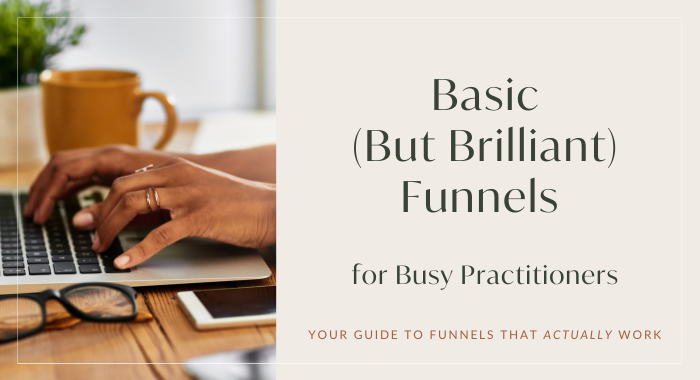Business legals are a block for many people in business. They are thought to be daunting and intimidating, yet they don’t need to be. Your business legals, for your website or in clinic, are documents designed to educate your client on what you are offering and how you do business, and ensuring you comply with the law at the same time.
I recently sat down to talk to small business lawyer, Michelle Whitehead, about what legal documents practitioners and natupreneurs need to have in place from day one. Watch the video or read below for the key points we cover.
One of the most popular issues that come up time and time again at question time is that of business legals for practitioners in the natural health and well-being space.
You can always Google relevant terms when you’re looking for something to use for your business, but chances are the legal templates you’ll find will be for another country or not quite what you need for your business.
Legal documents are best done when you first set up your clinic. This way you don’t have to constantly worry about things like privacy laws for example.
Your zone of genius is in the health discipline you’ve studied in, not law, so getting your legals done is best left to those who are qualified in that area so that you can rest assured that you and your business are protected.
Getting your business legals sorted at the beginning of your business journey as a practitioner will give you the confidence to grow your business.
This process of sorting out your legals doesn’t have to cost an arm and a leg, even though the common perception out there is that it would.
But why are legals important as a practitioner?
Your business legals are designed to express and provide clear boundaries on how you work with your clients. It doesn’t have to be something that is completely fear based. You care for your clients through your business and the services you provide, and you want your legals to express that caring as well.
Your business legals will be your base for any conflict or dispute resolution and will give you a framework to be able to respond to those scenarios in a calm and collected manner.
They have to be in place along with the rest of your business processes, and you need to make sure that you apply them consistently. With this in mind, your business legals need to be documents that you fully understand and can explain and apply easily.
Here are some terms you will find in your business legals that you need to understand as a natural health practitioner.
What is informed consent?
Informed consent is giving your clients the information they need to know in order to know what they are saying yes to. They know what they are saying “yes” to and understand what is going to happen to them. The more information you give your clients, the more informed their consent to your treatment is going to be. This also manages your clients’, expectation.
Review this document on a regular basis so that it stays up-to-date with what you’re providing.
What is the difference between informed consent and a privacy disclosure?
When treating a client, you will be collecting some personal information about them. Personal information is data that you wouldn’t normally disclose to others but the nature of the information is such that the client would be able to be identified by it.
There is information that is also sensitive in nature, such as someone’s health issues, dietary habits and other issues they need to disclose to you in order to get treatment.
Your privacy policy expresses to your clients that you care about protecting sensitive and private information they share with you in the context of their treatment and that you apply that policy to your business on a consistent basis.
This is where we need to mention the Privacy Amendment Act.
This relates to how you handle sensitive information. It’s especially relevant now with a lot of information being stored online. This Act states that when the information you have been trusted with has been accessed by someone the information hasn’t originally been intended for, you need to notify the parties being involved.
Using Google Forms to collect credit card details is an example of not following that Act. Storing your clients’ health details, personal details, contact details on Google Forms, for example, is against Google’s own privacy policy.
Everyone has a different level of risk tolerance. It’s up to you where you comfort zone is when it comes to risk. It’s also up to you to decide what level risks you will take. Educate yourself about how you manage your risks.
A secure alternative to Google Forms is Adobe Sign. Acuity is also a great alternative to collect information. Simple Clinic is great for Nutritionist and Naturopath industry and it specifically follows Australian privacy standards. They have secure fillable forms that are aligned with the Privacy Amendment Act.
Where does confidentiality fit in the scheme of things…
When you outsource some of your work to a VA, it’s very important to have a confidentiality agreement in place to ensure that information being passed between you and your VA is secure. It’s not only VAs but anyone who may have access to information you are storing about your clients.
That includes your receptionist, other practitioners, workmen that come on sight, anyone who has the potential to walk past your computer even.
Being consistent with your confidentiality can even be things like locking your screen when you’re away from your computer and securing your filing cabinet in your office when you’re not there. Your clients are trusting you with their information and being aware of that is very important.
What are terms and conditions? And do you need a disclaimer?
Australian Consumer Law requires you to have terms and conditions on your website. Those terms and conditions need to also be fair and reasonable. They should include things like your disclaimer.
Disclaimers set up the boundaries of where your responsibility ends and your client’s responsibility begins.
Your disclaimer describes, in sufficient detail, to your clients what you’re doing for them and where their responsibility begins. Ensure your disclaimer is visible and easily available.
You also want your clients to be aware of your refund policy, cancellation policy, your payment terms and dispute resolution practices.
Try to cover all the minor hiccups like unable to attend an online consultation because your internet service is out as well as more difficult issues such as not delivering a service as you have described it or providing any information that would have influenced their buying decision.
Your Intellectual Property needs to be protected too.
Everything you write on your website is copyrighted by inference. Nevertheless, you should assert your copyright over your content by expressing it on your website. It goes the other way around as well. Ensure that whatever material you use online, you have the right to use it.
Whether it’s an image or other media, knowing what and how you can use is important in avoiding hefty copyright fines. Proper attributions need to be made when using someone else’s intellectual property they are holding the copyrights for. This is your due diligence.
Trademarking is another legal terminology you should educate yourself on.
Business names only give you the right to conduct business under that name in Australia. It’s the government’s way of keeping track of who owns what business. Same applies to domain names. You can register it to identify your website but they don’t give you ownership rights to the name.
Trademarking is a way to register the ownership of your reputation in a name or image. Copyright doesn’t exist in a single word or phrase. To protect a single word or phrase, you’d need to trademark it. Once you trademark something, you have exclusive ownership of it.
It may cover a single country or multiple countries. Once you start using a process or word phrase or image consistently, you have a trademark. Put “™” after it and you have an unregistered trademark. There are specific legal implications for both registered and unregistered trademarking.
Trademark registrations last for 10 years but you don’t have to run now and register yours. Start by asserting your unregistered trademark on your processes, images, word phrases etc. Doing that builds your reputation as well. Keep documentation as evidence where you have asserted your unregistered trademark.
Testimonials can be tricky in the health industry.
Before you use a testimonial from a client, you need to get their consent and permission and you need to tell them where you’re going to use it. You also need to do the same if you want to use a photo with their testimonial. Make sure you have a record of that permission.
Consider the fact that any information contained in their testimonial, while they are happy to give it to you now, may not be something they want to be accessible to just anyone further down the line. There might be some personal and sensitive information in there that you should remove before using the testimonial.
Making them generic is always a good idea. The ACCC’s guideline is to prevent misleading or deceptive conduct so the language in your testimonials is very important.
What is the General Data Protection Regulation?
The General Data Protection Regulation (GDPR) is an extra level to the Privacy Amendment. If you’re only consulting with clients from New Zealand or Australia, it won’t apply to you.
In the European Union, however, it’s a separate law, much more stringent to what we have here in Australia.
Insurance becomes problematic when you’re treating clients from the US but even more so if you’re treating clients from EU. Before you consult with clients from the US or the EU, consult with your insurance company about your coverage. If you do decide to treat clients from the US or the EU, at the very least get an acknowledgement from your client that states they understand that your insurance won’t cover them.
Don’t miss the other Training Thursday interviews and videos, come and join us in the Natupreneur Hub on Facebook.
Tammy x









Leave A Comment